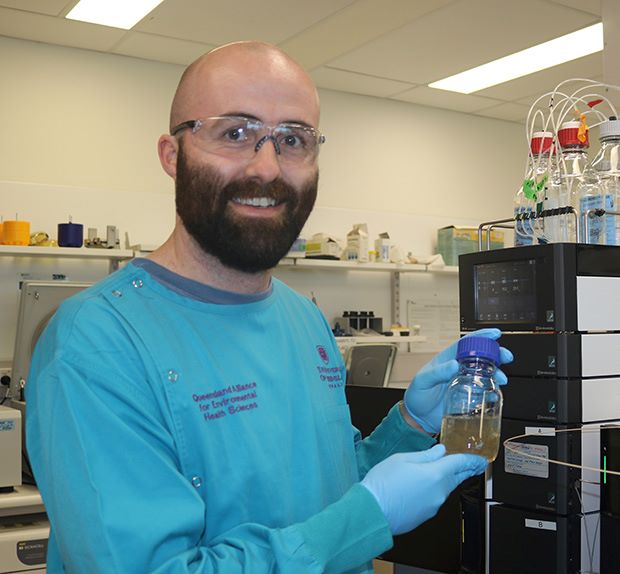
University of Queensland research has found use of the opioid oxycodone in Australia almost halved after changes to packaging and prescribing practices in 2019.
Dr Rory Verhagen from UQ’s Queensland Alliance for Environmental Health Sciences analysed data from 6,999 samples from more than 50 wastewater treatment plants across Australia between April 2017 to April 2023 as part of the National Wastewater Drug Monitoring program.
“We analysed wastewater to understand oxycodone consumption over 6 years to see how the clinical and regulatory changes affected the use of this strong and potentially addictive pain medication,” Dr Verhagen said.
“There was a significant 45 per cent reduction in oxycodone use between 2019 and 2020.
“Oxycodone use decreased nationally from 120 milligrams to 65 milligrams a day per 1000 people from August 2019 to December 2020.
“This drop coincided with changes to prescribing guidelines in 2019 and packaging changes from 2020.
“This is a turnaround from the 2 years prior to the changes when oxycodone use more than doubled from 78 milligrams a day per 1000 people to 120 milligrams a day.”
In 2019 the Therapeutic Goods Administration moved to address prescription opioid use and misuse concerns by reducing package size, adding warnings to packaging and educating health professionals to follow best prescribing practice.
 Dr Verhagen said oxycodone was prescribed for managing moderate to severe pain, often after surgery or for chronic pain conditions.
Dr Verhagen said oxycodone was prescribed for managing moderate to severe pain, often after surgery or for chronic pain conditions.
“While it can be very effective for pain relief, it's also associated with a risk of addiction and misuse,” Dr Verhagen said.
“We also analysed the wastewater samples for other opioids with misuse potential such as fentanyl and heroin.
“The consumption of heroin fluctuated without any clear trend while fentanyl followed a similar trend to oxycodone throughout the study period.”
The study is part of the Australian Criminal Intelligence Commission National Wastewater Drug Monitoring Program led by UQ and The University of South Australia that enables regular monitoring of drug and alcohol use in cities, regional and remote areas.
The research was published in Addiction.
Image above left: Dr Rory Verhagen in his laboratory at UQ.
Media contact
Faculty of Health and Behavioural Sciences
habs.media@uq.edu.au
+61 412 307 594











